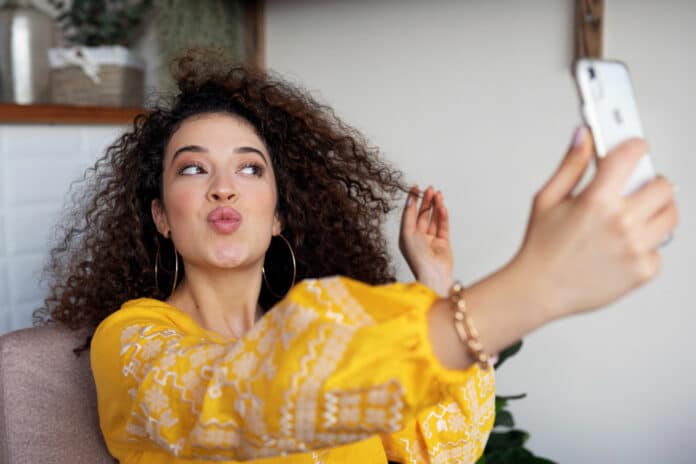Influencers are well-known individuals on social media who advocate for brands, businesses, and lifestyles and have a sizable following. Concern over the blatantly sexualized content that specific influencers share on social media is growing as they support lingerie and bikini brands.
A new study by Flinders University scientists highlights the negative impact of sexualized images on social media and the need for enhanced regulation of influencer advertising.
The study suggests that seeing sexualized Instagram photos by internet influencers makes young adult females feel worse about their bodies and has detrimental impacts on them that go beyond the desire to be thin and attractive.
Body image expert Associate Professor Prichard, who leads the Embrace Impact Lab at Flinders University, said, “This problem is amplified by the popularity of Instagram among young adults aged 18–34 years, with more than two billion active users monthly.”
The study looked at how young women’s mood and body dissatisfaction were affected by viewing regular fashion as well as sexualized pictures (posted suggestively and wearing lingerie or bikinis) shared by the same female influencers.
Online recruitment was used to find females between the ages of 17 and 25, who then completed measures of appearance comparison, self-objectification, and mood and body dissatisfaction before and after seeing the videos.
Associate Professor Prichard said, “Exposure to influencer imagery led to greater negative mood, body dissatisfaction, appearance comparison, and self-objectification than exposure to control images.”
“Furthermore, exposure to sexualized images led to an even greater negative mood, body dissatisfaction, and appearance comparison than exposure to standard fashion images of influencers – and this was with images chosen as being only moderately sexualized (for ethical reasons) rather than hypersexualized, which depict more lewd poses.”
The most obvious conclusion is that women should be urged to unfollow influencers who publish such content and to restrict their exposure to such photos. There is mounting evidence that the benefits of taking even a little vacation from Instagram might be significant.
On a policy note, the use of highly sexualized imagery in advertising is forbidden by a new code of conduct for Australian advertisers, which went into effect on February 1, 2021. However, as user-generated content is exempt from this rule, influencers’ Instagram posts, including user-generated content, are not covered.
Associate Professor Prichard says that influencers, who gain considerable financial benefit from their endorsements should be held to the same standards as other advertisers.
“Our study findings highlight the detrimental impact of exposure to sexualized imagery, which is an increasingly common part of contemporary social media, and the role of social comparisons to such imagery.”
“We have clearly shown that the effects of sexualization extend beyond those of attractiveness. These findings illustrate the need for more research and enhanced regulation regarding advertising by influencers on social media.”
Journal Reference:
- Ivanka Prichard, Brydie Taylor and Marika Tiggemann. Comparing and self-objectifying: The effect of sexualized imagery posted by Instagram influencers on women’s body image. Body Image. DOI: 10.1016/j.bodyim.2023.07.002
